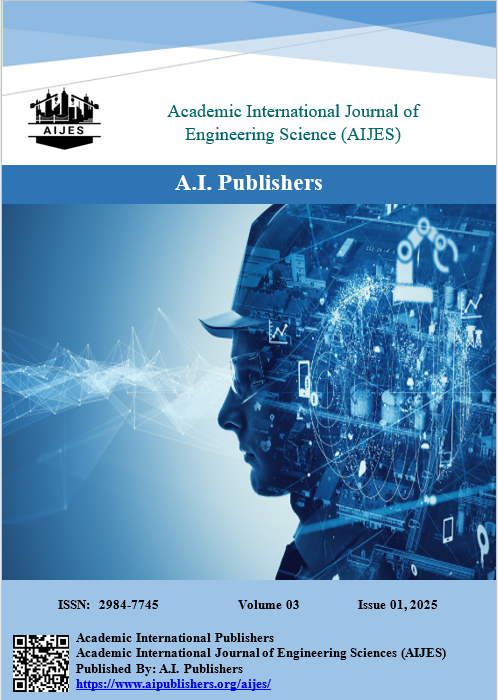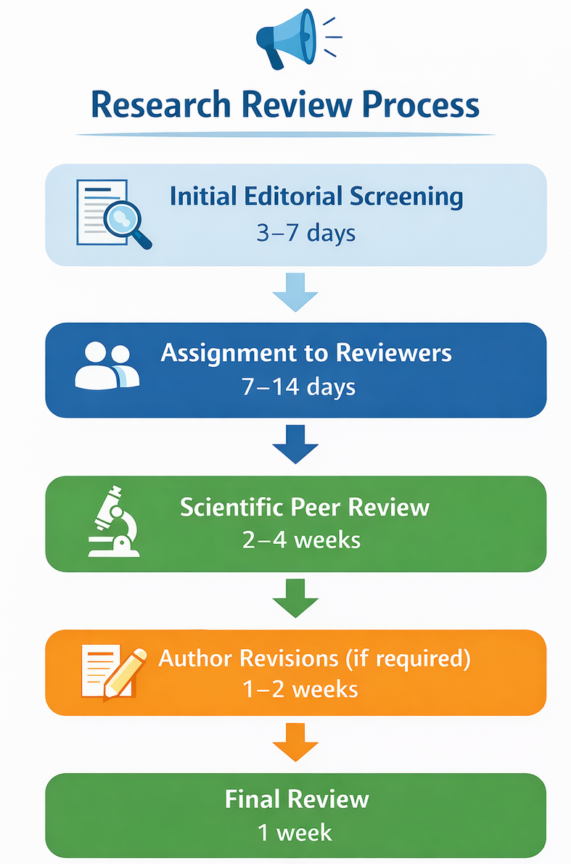Machine Learning Techniques and Insights for Cardiovascular or Heart Disease Prediction
DOI:
https://doi.org/10.59675/E313Keywords:
Heart Disease Prediction, Early Detection, Cardiovascular Health, Gradient Boosting Machines, K- Nearest Neighbors, Artificial Neural Networks.Abstract
Heart disease has been one of the major health concerns over the decades regardless of age, weight, or gender. Here in the article, we try to highlight the importance of early detection and the prevention of life-threatening heart-related diseases, including heart attacks and strokes. For this review paper, we include raw data from clinics and also include the famous Framingham Heart Study dataset, which is a popular cardiovascular dataset, including patient records that emphasize important human risk factors including age, blood pressure, cholesterol, smoking status, and family history. Precision, recall, accuracy, F1-score, and ROC-AUC metrics are such techniques and algorithms that are used to evaluate the implementation and performance of advanced machine learning approaches, including Gradient Boosting Machines (GBM), K-Nearest Neighbors (KNN), Artificial Neural Networks (ANN), Convolutional Neural Network (CNN) and many more. Here, we
References
Aasheesh. Framingham heart study dataset [Data set]. Kaggle. 2020. Available from: https://www.kaggle.com/datasets/aasheesh200/framingham-heart-study-dataset
Lohachab A, Kumar K. A Comparative Study of Machine Learning Algorithms for Predicting Cardiovascular Disease. In: Pastor-Escuredo D, Brigui I, Kesswani N, Bordoloi S, Ray AK, editors. The Future of Artificial Intelligence and Robotics. ICDLAIR 2023. Lecture Notes in Networks and Systems, vol 1001. Cham: Springer; 2024. https://doi.org/10.1007/978-3-031-60935-0_1 DOI: https://doi.org/10.1007/978-3-031-60935-0_1
Roopini J, Deepa BG, Pooja NG. Assessing and Exploring Machine Learning Techniques for Cardiovascular Disease Prediction using Cleveland and Framingham Datasets. In: 2024 Second International Conference on Networks, Multimedia and Information Technology (NMITCON); 2024 Aug 9; pp. 1-9. IEEE. DOI: https://doi.org/10.1109/NMITCON62075.2024.10698965
Manjula BM, Dhanush CO, Gurudeep GH, Likhith MY. App-based cardiovascular disease prediction using machine learning algorithms. In: 2024 Third International Conference on Distributed Computing and Electrical Circuits and Electronics (ICDCECE); 2024. Ballari, India: IEEE; 2024. pp. 01-06. https://doi.org/10.1109/ICDCECE60827.2024.10548106 DOI: https://doi.org/10.1109/ICDCECE60827.2024.10548106
Zhou C, Dai P, Hou A, et al. A comprehensive review of deep learning-based models for heart disease prediction. Artif Intell Rev. 2024;57:263. https://doi.org/10.1007/s10462-024-10899-9 DOI: https://doi.org/10.1007/s10462-024-10899-9
Gao F, Mao B, Wu L, Wang Z, Mu D, Hu W. Leveraging Ensemble Learning for Side Channel Analysis on Masked AES. In: 2021 7th International Conference on Computer and Communications (ICCC); 2021. Chengdu, China: IEEE; 2021. pp. 267-271. https://doi.org/10.1109/ICCC54389.2021.9674477 DOI: https://doi.org/10.1109/ICCC54389.2021.9674477
Hamedan F, Orooji A, Sanadgol H, Sheikhtaheri A. Clinical decision support system to predict chronic kidney disease: A fuzzy expert system approach. Int J Med Inform. 2020;138:104134. https://doi.org/10.1016/j.ijmedinf.2020.104134 DOI: https://doi.org/10.1016/j.ijmedinf.2020.104134
Petmezas G, Papageorgiou VE, Vassilikos V, Pagourelias E, Tsaklidis G, Katsaggelos AK, et al. Recent advancements and applications of deep learning in heart failure: A systematic review. Comput Biol Med. 2024;176:108557. https://www.sciencedirect.com/science/article/abs/pii/S0010482524006413?via%3Dihub DOI: https://doi.org/10.1016/j.compbiomed.2024.108557
Jiang H, Mao H, Lu H, Lin P, Garry W, Yang G, et al. Machine learning-based models to support decision-making in emergency department triage for patients with suspected cardiovascular disease. Int J Med Inform. 2021;145:104326. https://doi.org/10.1016/j.ijmedinf.2020.104326 DOI: https://doi.org/10.1016/j.ijmedinf.2020.104326
Rabbi MA, Rijon RH, Akhi SS, Hossain A, Jeba SM. A Detailed Analysis of Machine Learning Algorithm Performance in Heart Disease Prediction. In: Proc. 2025 4th Int. Conf. Robotics, Elect. Signal Process. Tech. (ICREST); 2025 Jan; Dhaka, Bangladesh: IEEE; 2025. pp. 259–263. https://doi.org/10.1109/ICREST63960.2025.10914417 DOI: https://doi.org/10.1109/ICREST63960.2025.10914417
Dorraki M, Liao Z, Abbott D, Psaltis PJ, Baker E, Bidargaddi N, et al. Improving cardiovascular disease prediction with machine learning using mental health data: A prospective UK Biobank study. JACC: Adv. 2024;3(9 Pt. 2):101180. https://doi.org/10.1016/j.jacadv.2024.101180 DOI: https://doi.org/10.1016/j.jacadv.2024.101180
Di Cesare M, Perel P, Taylor S, Kabudula C, Bixby H, Gaziano TA, et al. The heart of the world. Global Heart. 2024 Jan 25;19(1):11. DOI: https://doi.org/10.5334/gh.1288
Ghosh M, et al. A Comparative Analysis of Machine Learning Algorithms to Predict Liver Disease. Intell Autom Soft Comput. 2021;30(3):917–928. https://doi.org/10.32604/iasc.2021.017989 DOI: https://doi.org/10.32604/iasc.2021.017989
Tusher MI, et al. Deep learning meets early diagnosis: A hybrid CNN-DNN framework for lung cancer prediction and clinical translation. Int J Med Sci Public Health Res. 2025;6(5):63–72. https://doi.org/10.37547/ijmsphr/Volume06Issue05-04 DOI: https://doi.org/10.37547/ijmsphr/Volume06Issue05-04
Ray RK, et al. Transforming breast cancer identification: An in-depth examination of advanced machine learning models applied to histopathological images. J Comput Sci Technol Stud. 2024;6(1):155–161. https://doi.org/10.32996/jcsts.2024.6.1.16 DOI: https://doi.org/10.32996/jcsts.2024.6.1.16
Sethi S, Dharmavaram S, Somasundaram SK. Explainable artificial intelligence (XAI) approach to heart disease prediction. In: 2024 3rd International Conference on Artificial Intelligence for Internet of Things (AIIoT); 2024. Vellore, India: IEEE; 2024. pp. 1-6. https://doi.org/10.1109/AIIoT58432.2024.10574635 DOI: https://doi.org/10.1109/AIIoT58432.2024.10574635
Ghosh S, Ahmad R, Zeyaullah M, Khare SK. Microbial Nano-Factories: Synthesis and Biomedical Applications. Front Chem. 2021 Apr;9:626834. https://doi.org/10.3389/fchem.2021.626834 DOI: https://doi.org/10.3389/fchem.2021.626834
Telmoud CA, Saleck MM, Tourad MC. Advancing heart disease diagnosis and ECG classification using machine learning. J Theor Appl Inf Technol. 2024;102(6):2608-2623. Available from: https://www.jatit.org/volumes/Vol102No6/30Vol102No6.pdf
Zheng H, Sherazi SWA, Lee JY. A Stacking Ensemble Prediction Model for the Occurrences of Major Adverse Cardiovascular Events in Patients With Acute Coronary Syndrome on Imbalanced Data. IEEE Access. 2021;9:113692-113704. https://doi.org/10.1109/ACCESS.2021.3099795 DOI: https://doi.org/10.1109/ACCESS.2021.3099795
Downloads
Published
Issue
Section
License
Copyright (c) 2025 Academic International Journal of Engineering Sciences

This work is licensed under a Creative Commons Attribution 4.0 International License.








